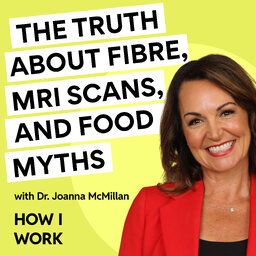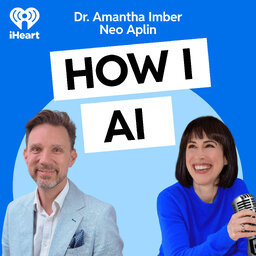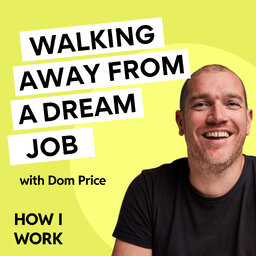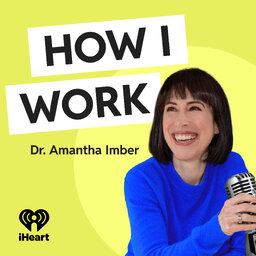Journaling for people who hate journaling: Michael Bungay Stanier's game-changing method
That beautiful leather-bound journal you bought with the best intentions? The one now gathering dust under a pile of books? You're not alone.
After 40 years of failed journaling attempts, Michael Bungay Stanier finally cracked the code to sustainable reflection—and it's likely nothing like what you've tried before.
Michael is the author behind the Wall Street Journal bestseller The Coaching Habit (which Brené Brown called "a classic"), with over 1.5 million books sold worldwide. Named the #1 Thought Leader in Coaching by Thinkers50, his insights have been featured in Harvard Business Review, Forbes, and Fast Company.
In this conversation, Michael shares:
- His surprisingly simple journaling breakthrough that eliminates the most common barriers to consistency
- A powerful weekly reflection framework that drives tangible results (not just empty introspection)
- The counterintuitive boundary system he uses to prevent work overload while maximizing impact
- Why he rejects popular "word of the year" goal-setting (and what he does instead)
Whether you're a serial journal abandoner or simply seeking more intentional reflection practices, Michael's practical approach offers a refreshing alternative to traditional journaling methods that actually sticks.
Key Quotes:
“One thing that is really helpful is just to know I don’t have to say yes right away.”
“I have failed to successfully journal since I was 16. I’m now 57, so I’ve been attempting to journal for 40 years.”
“If you just start asking yourself what you want day in and day out it just starts forcing a deep clarity.”
Connect with Michael via his website, Instagram, LinkedIn, or buy the Do Something That Matters Journal.
My latest book The Health Habit is out now. You can order a copy here: https://www.amantha.com/the-health-habit/
Connect with me on the socials: Linkedin (https://www.linkedin.com/in/amanthaimber)
Instagram (https://www.instagram.com/amanthai)
If you are looking for more tips to improve the way you work and live, I write a weekly newsletter where I share practical and simple to apply tips to improve your life. You can sign up for that at https://amantha-imber.ck.page/subscribe
Visit https://www.amantha.com/podcast for full show notes from all episodes.
Get in touch at amantha@inventium.com.au
Credits:
Host: Amantha Imber
Sound Engineer: The Podcast Butler
In 1 playlist(s)
How I Work
You know those annoyingly successful people who seem to have it all figured out? Time to steal their…Social links
Follow podcast
Recent clips

The truth about fibre, full-body MRIs and food myths, with Dr Joanna McMillan.
33:58

We Let AI Prep Us for a Doctors Appointment
17:57

Walking away from a dream job? Dom Price reveals what really happens in the space after “I quit.”
39:42
 How I Work
How I Work